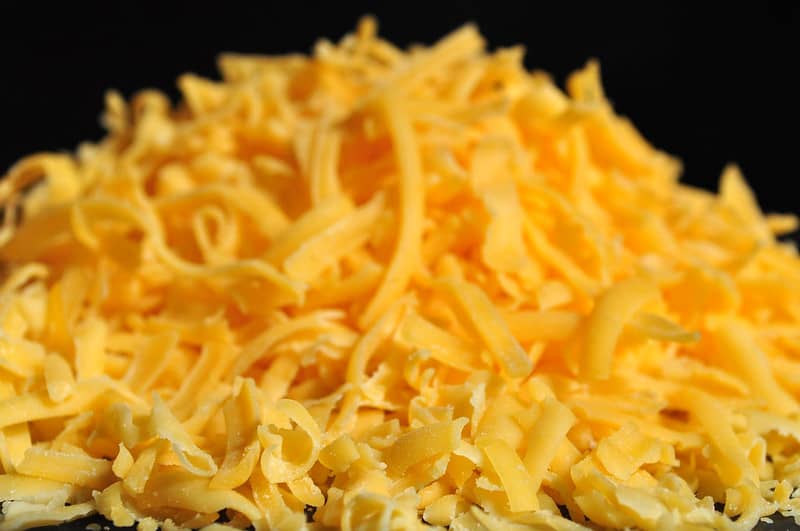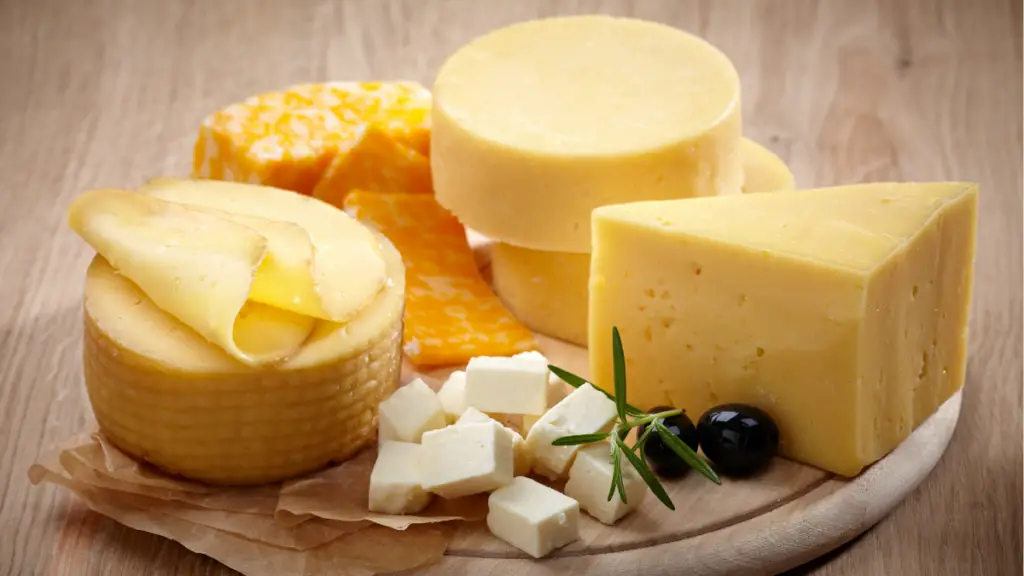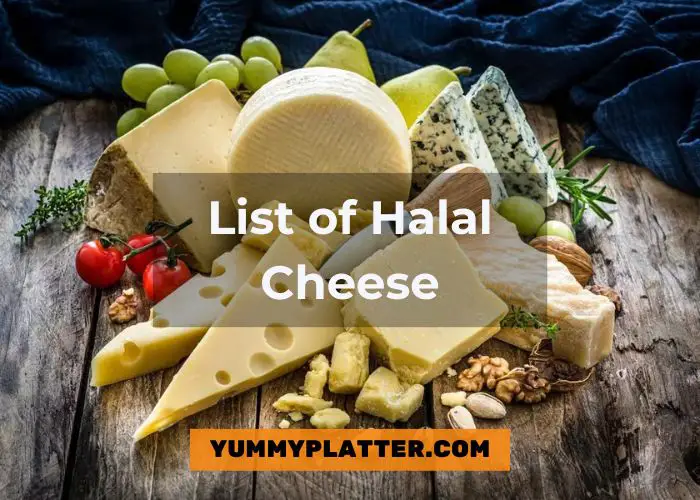Finding the right “List of Halal Cheese” can be a game-changer for those following a halal diet. What makes cheese halal, you might wonder? It’s all about sticking to dietary laws that ensure the food is permissible under Islamic law. Cheese, with its various ingredients, often raises questions about its halal status.
Understanding what goes into your cheese and ensuring it meets halal standards isn’t just comforting; it’s necessary. From the enzymes used in its production to the type of rennet, each detail matters. But fear not! We’re here to guide you through the maze of halal cheese options available.
This post will not only explain the ins and outs of halal cheese but also introduce you to a variety of halal cheese brands and products. Whether you’re looking to top your pizza with mozzarella, sprinkle feta on your salad, or enjoy a slice of cheddar, we’ve got you covered with halal choices.
Join us as we explore everything you need to know about halal cheese, ensuring your cheese board is both delicious and compliant with halal dietary guidelines.
Understanding Halal Cheese
When it comes to cheese, not all types are created equal—especially through the lens of halal dietary laws. But what exactly makes cheese halal? It’s a combination of ingredients, processing methods, and certification that ensures the cheese adheres to Islamic dietary guidelines. Let’s break this down to understand it better.
Ingredients Matter: The halal status of cheese often hinges on the type of rennet used in its production. Rennet, a set of enzymes used to curdle milk, can be of animal, plant, or microbial origin. For cheese to be considered halal, it must either use non-animal rennet or rennet from a halal-slaughtered animal. Many cheeses, however, use rennet derived from animals not slaughtered according to Islamic law, rendering them non-halal.
Certification is Key: With the complexity of food processing, halal certification becomes crucial. This certification, provided by recognized Islamic organizations, assures consumers that the product meets strict halal standards. Look for certification labels on the packaging to ensure the cheese’s halal status.
Cross-Contamination Concerns: Another aspect to consider is cross-contamination. Cheese produced in facilities that also process non-halal products might be exposed to cross-contamination, affecting its halal status. Halal-certified products ensure that such risks are minimized through strict adherence to halal production practices.
Vegetarian Cheeses: A helpful tip for those navigating the halal cheese landscape is to look for vegetarian cheeses. These are often made with plant-based or microbial rennet, making them suitable for a halal diet. However, it’s always best to check for halal certification to be sure.
How to Identify Halal Cheese
Identifying halal cheese in a market filled with countless options can seem daunting. However, with the right knowledge and a bit of vigilance, you can easily spot cheese that fits your halal dietary requirements. Here’s how:
1. Look for Halal Certification: The most straightforward way to ensure cheese is halal is to look for an official halal certification mark on the packaging. This certification should come from a reputable Islamic organization that verifies the product meets all halal dietary laws. These marks are your best assurance that the cheese has been produced according to Islamic guidelines, from the sourcing of ingredients to the manufacturing processes.
2. Understand Ingredient Labels: Becoming familiar with ingredient labels is crucial. Specifically, pay attention to the source of the rennet used in cheese production. If the label mentions “vegetable rennet,” “microbial rennet,” or explicitly states it’s “suitable for vegetarians,” there’s a good chance the cheese is halal. However, if the source of the rennet is ambiguous or clearly animal-derived without specifying halal slaughter, the cheese might not meet halal standards.
3. Research Brands and Products: Some cheese brands are well-known for their commitment to halal practices. Doing a bit of research online or asking for recommendations in halal forums and social media groups can lead you to trusted brands. Once you find a brand that aligns with halal guidelines, you can confidently explore their range of cheese products.
4. Consult Halal Consumer Groups: There are numerous consumer groups and organizations dedicated to helping Muslims find halal food products. These groups often publish lists of halal-certified brands and products, including cheese. Consulting their resources can save you time and ensure you’re making halal choices.
5. Contact Manufacturers Directly: If you’re unsure about a product’s halal status, don’t hesitate to contact the manufacturer directly. Most companies are happy to provide information about their ingredients, sourcing, and production processes. This can be particularly helpful for products that do not have clear labeling.
6. Choose Vegetarian Labeled Cheese with Caution: While vegetarian cheese can be a good indicator of halal compliance due to the absence of animal rennet, it’s still essential to verify other ingredients and the risk of cross-contamination. Vegetarian does not always equate to halal, so additional verification may be needed.
List of Halal Cheese Brands and Products in available in the USA

In the United States, the demand for halal products has seen a significant rise, leading to more brands offering halal-certified cheeses. This is great news for consumers adhering to a halal diet, as it means more variety and easier access to products that fit their dietary laws. Here, we’ve compiled a list of popular halal cheese brands and their products available in the U.S. market. These brands have taken the steps to ensure their products meet halal standards, providing peace of mind for those looking to enjoy cheese without compromising their dietary beliefs.
1. Kraft
Products: Offers a variety of halal-certified cheeses, including mozzarella and cheddar slices. Look for the halal certification on the packaging to ensure compliance.
2. Cabot Creamery
Products: Known for their commitment to quality, Cabot Creamery offers halal-certified cheddar in various ages and flavors. Their certification details can be found on their website and packaging.
3. Amul
Products: While originally from India, Amul’s range of cheeses, including paneer, gouda, and emmental, are widely available in the U.S. and come with halal certification.
4. Crescent
Products: Specializes in halal-certified dairy products, including a range of cheeses like mozzarella, cheddar, and Monterey Jack that cater to the needs of the halal consumer.
5. Almarai
Products: Although Almarai is a Middle Eastern brand, its products, including cream cheese, feta, and sliced cheeses, are accessible in the U.S. market and carry halal certification.
6. Happy Cow
Products: Offers a variety of halal-certified cheese products, such as cheese slices, spreads, and cubes that are perfect for snacking or cooking.
These brands represent just a starting point for those on the lookout for halal cheese options in the USA. Each brand has taken the necessary steps to ensure its products meet halal standards, offering a diverse range of choices for consumers. When shopping, always check the packaging for the most current halal certification to ensure compliance with your dietary needs.
By supporting these brands, consumers can enjoy a wide selection of cheeses, from traditional cheddar and mozzarella to more specialized varieties like gouda and paneer, all while adhering to halal dietary laws.
List of Halal Cheese Brands and Products in the UK
The UK, with its diverse population, has seen a rise in brands committed to providing halal-certified dairy products. Below is a list of some of the top halal cheese brands and their products available in the UK market, ensuring that you can enjoy delicious cheeses without compromising on your dietary principles.
1. Greenfields
Products: Offers a range of halal-certified cheeses, including halloumi, feta, and cheddar. Their commitment to quality and adherence to halal standards makes them a favorite among consumers.
2. Tesco
Products: Tesco’s own brand of cheese includes several halal-certified options, such as mozzarella, cheddar, and gouda, easily identifiable with halal markings on the packaging.
3. Kraft
Products: Similar to its offerings in the USA, Kraft provides a selection of halal-certified cheeses in the UK, including cream cheese and sliced cheeses suitable for a variety of dishes.
4. Almarai
Products: A well-known brand in the Middle Eastern market, Almarai’s cheeses, such as their spreadable cream cheese and feta, are also available in the UK with halal certification.
5. Madina Cheese
Products: Focused on the Asian community in the UK, Madina Cheese offers a range of halal-certified products, including paneer, cheddar, and mozzarella, catering to the needs of diverse culinary traditions.
These brands are at the forefront of offering halal-certified cheese in the UK, making it easier for consumers to find products that align with their dietary requirements. It’s always advisable to check the latest halal certification on the packaging or with the manufacturer to ensure compliance with halal dietary laws.
Also Read: Is Cheddar Cheese Halal?
Incorporating Halal Cheese into Your Diet

Incorporating halal cheese into your diet opens a world of culinary possibilities, allowing you to enjoy a variety of flavors while adhering to your dietary principles. Whether you’re looking to enhance your meals or explore new recipes, halal cheese can be a versatile and delicious component of your diet. Here’s how you can seamlessly integrate it:
1. Diverse Meals: Use halal cheese to add flavor and richness to a range of dishes. From sprinkling feta on your salads to melting mozzarella on your pizzas, halal cheese can elevate the taste of your meals.
2. Healthy Snacking: For a healthier snack option, pair slices of halal cheese with fruits or nuts. This not only satisfies hunger pangs but also provides a good balance of protein and other nutrients.
3. Creative Cooking: Experiment with different types of halal cheese in your cooking. Incorporate them into pastas, soups, and baked goods to discover new flavors and textures.
4. Breakfast Options: Start your day with a nutritious breakfast by adding halal cheese to your omelets, sandwiches, or pancakes, giving you the energy boost you need.
5. Explore International Cuisine: Halal cheese allows you to explore a variety of international cuisines that rely heavily on cheese, such as Italian, Greek, or Middle Eastern, ensuring you don’t miss out on global flavors.
Conclusion
Exploring the world of halal cheese doesn’t have to be a daunting task. With the growing availability of halal-certified cheeses in markets around the world, including the USA and the UK, adhering to your dietary principles while enjoying a variety of delicious cheeses has never been easier. By understanding what makes cheese halal, knowing how to identify it, and exploring the wide range of halal cheese brands and products available, you can seamlessly incorporate these cheeses into your diet. Whether you’re cooking at home, snacking, or exploring new cuisines, halal cheese offers a versatile and flavorful addition to your meals. Remember, the key to enjoying halal cheese lies in choosing products that are certified halal, ensuring they meet your dietary needs while satisfying your culinary cravings.










Leave a reply